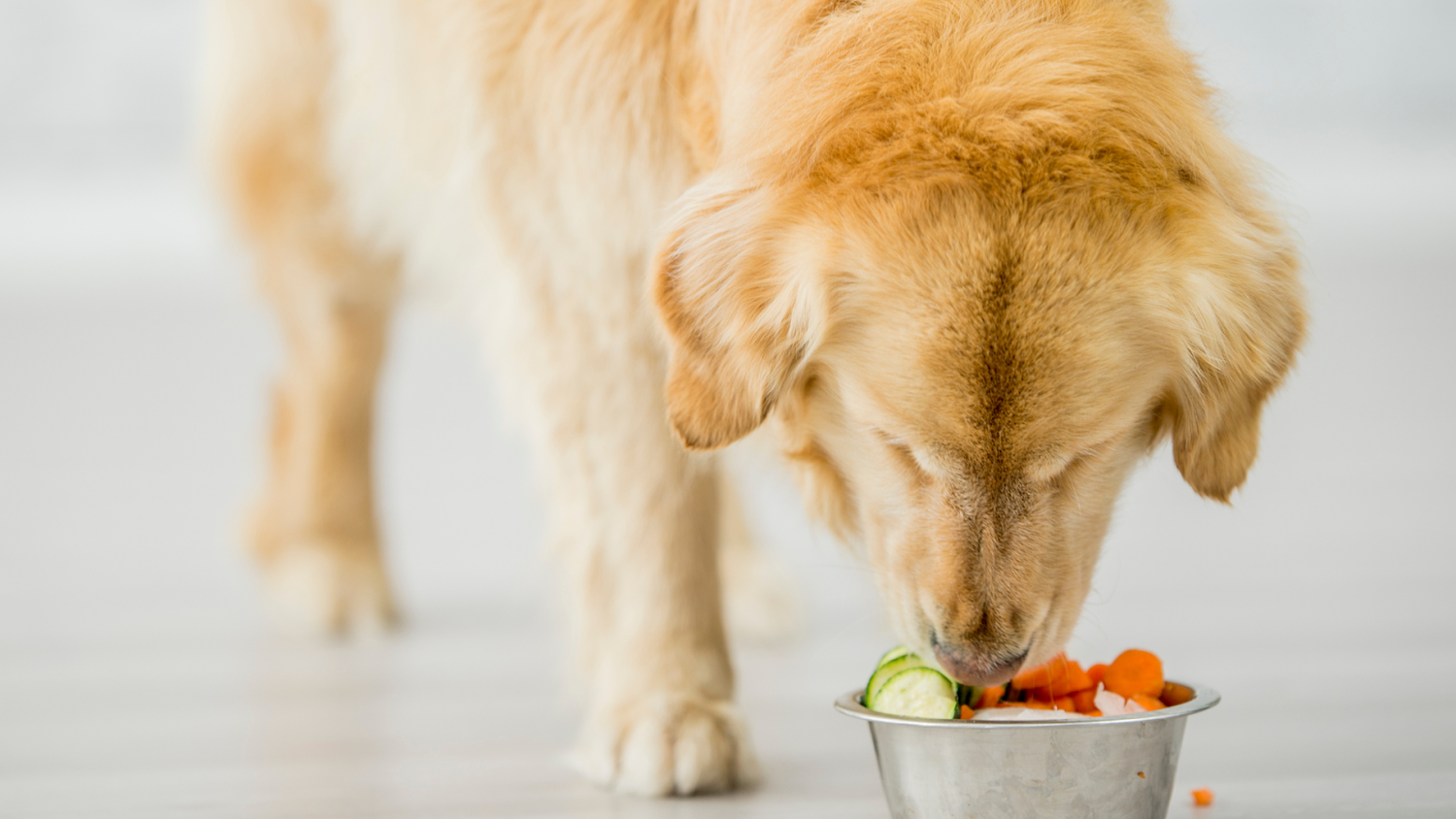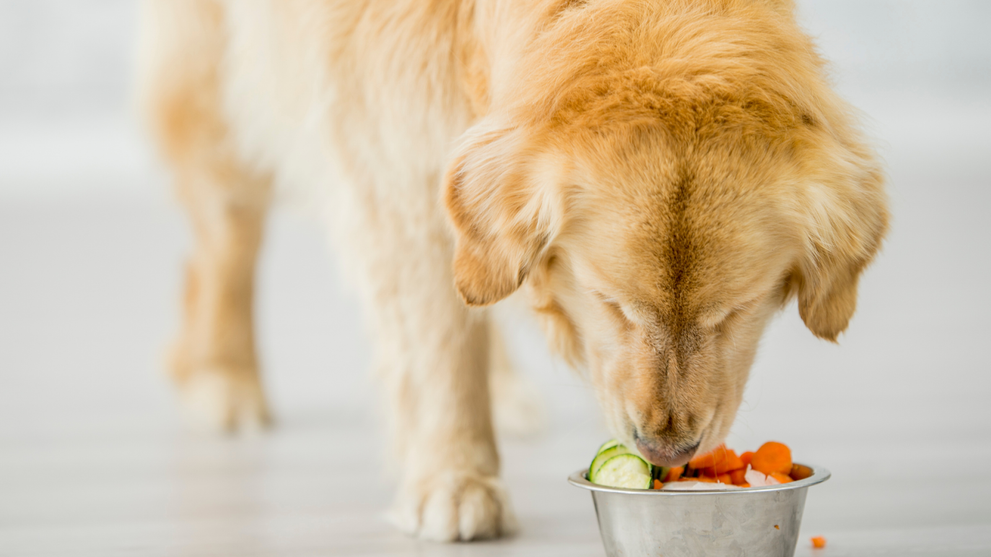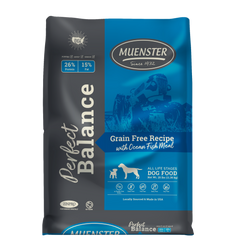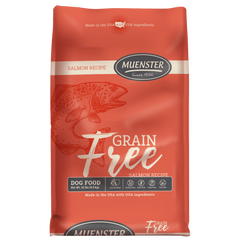Key Takeaways:
- Grain-Free Isn’t One-Size-Fits-All: Some dogs thrive without grains, especially those with allergies or sensitivities, but it’s not essential for every pup.
- Nutritional Quality > Marketing Buzz: A well-formulated grain-free recipe can support health, but “grain-free” alone doesn’t guarantee better nutrition.
- Trust Matters: Choosing grain-free is as much about the brand as the ingredients. Muenster Pet delivers transparency, science-backed formulas, and Texas-made quality.
Grain-free dog food has become a familiar sight on pet store shelves, but not everyone is sure what it actually means, or if it’s the right choice for their pup. With all the buzz online, it’s easy to get caught between marketing claims, blog posts, and well-meaning advice from other dog parents. Add in the worry that you're missing something important, and suddenly, picking a bag of food feels a lot harder than it should. The truth is, grain-free diets aren’t a trend; they’re a thoughtful option for many dogs with unique needs, and they deserve a closer look.
We’ve been making dog food since 1932, and we still do it the old-fashioned way, by hand, in small batches, right here in Texas. Our grain-free recipes are formulated by animal nutrition experts, backed by decades of experience, and made with real, traceable ingredients. We don’t just follow the science, we help shape it, using our in-house manufacturing and research to craft food that helps dogs feel good and live well.
What Does “Grain-Free” Really Mean for Dogs?
When pet parents see the words “grain-free” on a bag of dog food, it can sound like a promise of something better, healthier, or more natural. But what does it actually mean?
At its simplest, grain-free dog food is made without common cereal grains, including wheat, corn, rice, barley, and oats. Instead, these recipes rely on alternative sources of carbohydrates and fiber, such as sweet potatoes, peas, lentils, or tapioca. Some formulas, like our grain-free line at Muenster Pet, go even further by focusing on nutrient-dense vegetables, premium animal proteins, and healthy fats that help dogs feel satisfied, energized, and supported from the inside out.
It’s important to understand that grain-free doesn’t mean carb-free, and it’s not a one-size-fits-all solution. However, it can be a thoughtful choice for dogs with certain food sensitivities, allergies, or those who simply seem to feel better without grains in their diet.
For many pet parents, the shift to grain-free starts with a question: “Is grain-free good for dogs, or is it just clever marketing?” That’s exactly what we’re here to explore. If you’re wondering which dog food is best for my dog, grain-free might be part of that answer, but it depends on your pup’s unique needs.
Is Grain-Free Good For Dogs Or Just A Trend?
Grain-free dog food has become a popular choice in recent years, appearing in specialty shops and big-box stores alike. But just because it’s trending doesn’t mean it’s the right fit for every pup.
Why It Became Popular
As more people cut grains from their own diets, many started wondering if dogs should, too. Grain-free quickly became a go-to option for pet parents seeking healthier alternatives, whether their dogs required it or not.
When It Helps
For dogs with grain sensitivities, switching to a grain-free diet can help alleviate issues such as itching, ear infections, and upset stomachs. It's not a cure-all, but it can make a real difference for some.
When It’s Not Necessary
Dogs without sensitivities often do just fine with quality grains like oats or sorghum, which provide lasting energy and nutrients. Cutting grains isn't always needed, and may even be less ideal in some cases.
What Really Matters
Every dog is different. Some thrive on grain-free diets, while others don’t. Pay attention to how your pup feels, and if you’re unsure, our guide on which dog food is best for my dog can help you figure it out.
Why Some Dogs Thrive Without Grains
While grains can be a healthy part of many dogs’ diets, there are plenty of pups who feel their absolute best without them. Here's why skipping the grains can sometimes be the right move:
Food Sensitivities And Allergies
Some dogs simply don’t tolerate grains well. They may experience chronic itching, licking their paws, loose stools, or frequent ear infections, all of which can be signs of a food sensitivity. Eliminating grains can often help calm these symptoms and improve overall comfort.
Simpler, More Digestible Ingredients
Dogs have shorter digestive tracts than humans, which means they don’t always break down complex carbs (like grains) efficiently. Grain-free formulas often include more digestible carbs from sources like sweet potatoes or lentils, alongside proteins and fats that dogs can easily absorb and use.
Higher Protein, More Energy
Many grain-free recipes naturally contain a higher percentage of animal protein, which can be especially beneficial for active dogs, growing puppies, or pups who just love to zoom. Consuming more protein can lead to stronger muscles, increased sustained energy, and a better overall body condition.
Skin And Coat Health Benefits
When food sensitivities are reduced and digestion improves, dogs often exhibit this improvement in their skin and coat. Grain-free diets rich in healthy fats and bioavailable nutrients can lead to shinier coats, less flaky skin, and fewer hot spots. Every dog is different, but if your pup is showing signs that something’s “off,” switching to grain-free might be worth exploring. If you're wondering which dog food is best for my dog, grain-free could be one of the paths to consider.
How To Choose The Right Grain-Free Dog Food
If you’ve decided to explore a grain-free diet for your pup, the next big step is finding a recipe that actually works, nutritionally, practically, and deliciously. Here’s what to look for when picking the right grain-free option:
Start With Real Animal Protein
Meat should be the first ingredient. Dogs thrive on animal protein, and the quality of this protein matters. Look for named sources like beef, chicken, or salmon, not vague terms like “meat meal.” At Muenster Pet, our grain-free recipes always start with real, responsibly sourced protein, designed to support energy, muscle, and tail-wagging joy.
Watch The Carbs
Grain-free doesn’t mean carb-free. Many grain-free foods still contain starchy ingredients, such as peas or sweet potatoes. That’s not a bad thing; these can provide energy and fiber, but balance is key. The right recipe won’t overload your dog with fillers.
Check For Complete & Balanced Nutrition
It’s not just about what’s left out, it’s about what’s put in. A quality grain-free formula should contain a thoughtful mix of vitamins, minerals, healthy fats, and fiber. Look for a product designed for your dog’s life stage, and made by people who know dogs inside and out.
Know Who’s Behind The Bowl
This part really matters. Choose a brand that’s transparent about sourcing, manufacturing, and formulation. At Muenster, we’ve been crafting dog food for four generations, right here in Texas. We make our own food in-house because we believe your fur baby deserves nothing less. If you’re still figuring out which dog food is best for my dog, we’ve got a resource just for that, too.
Are There Risks To Grain-Free Diets?
Grain-free dog food has sparked concern in recent years, mostly due to media reports linking it to canine dilated cardiomyopathy (DCM). But the truth is more nuanced. Research is still ongoing, and factors like breed, genetics, and overall diet quality all play a role.
At Muenster, our grain-free recipes are formulated with balanced nutrition in mind, featuring no fillers and only premium proteins, nutrient-rich vegetables, and expert-backed science. Grain-free diets can be a smart choice for many dogs, but they’re not necessary for all.
What Makes Muenster Pet’s Grain-Free Recipes Different
Not all grain-free foods are created equal, and we’d like to think ours stand out for all the right reasons. Here’s what sets Muenster apart when it comes to nourishing dogs who thrive without grains:
Texas-Proud Since 1932
We’ve been quality-obsessed since 1932, and we still make our food in small batches right here in Texas. That means no outsourcing, no middlemen, and no mystery ingredients—just real, honest dog food made by people who actually love dogs.
Formulated By Experts, Backed By Science
Our grain-free recipes aren’t just trendy, they’re built on decades of animal nutrition experience. Experts design each formula to meet your dog’s needs at every life stage, with premium proteins, healthy fats, and nutrient-dense vegetables.
Real Ingredients, Real Transparency
We believe you deserve to know what’s in your dog’s bowl, and why. That’s why we only use high-quality, clearly sourced ingredients, and why you’ll never find filler or fluff in our formulas, just food that supports long-term health, from the inside out.
Let’s Find Out Which Dog Food Is Best For My Dog
Choosing your dog’s food can be overwhelming. Between ingredient lists, online opinions, and your pup’s ever-changing tastes, it’s easy to second-guess yourself. We get it, and we’re here to help simplify that decision.
Whether your dog has a sensitive stomach, boundless energy, or a history of picky eating, you don’t have to figure it out alone. Our team at Muenster Pet has created a helpful guide to walk you through the options based on your dog’s unique needs, personality, and lifestyle.
If you’re still wondering which dog food is best for my dog, we’ve broken it all down in a way that’s practical and easy to digest.
Final Thoughts
There’s no single “best” way to feed a dog, just the best way to feed your dog. Some pups thrive on ancient grains. Others do better on a grain-free diet. And sometimes, it takes a little trial and error to find what truly works.
At Muenster, we’re not here to push trends or overpromise; we’re here to offer thoughtfully crafted options for real dogs, real families, and real life. If grain-free is the right path for your pup, we’re proud to be part of that journey with recipes that prioritize nutrition, transparency, and taste. Because feeding your dog well shouldn’t feel like guesswork, it should feel like love.
Read Also:
- Mission K9 Rescue
- Winter Fun With Your Dog: Indoor Outdoor Adventures
- The Pet Perfect Holiday: A Guide To Celebrations With Furry Family Members
Frequently Asked Questions: The Truth About Grain-Free Diets For Dogs
Is grain-free dog food low in carbohydrates?
Not always. Grain-free simply removes traditional grains, but many formulas use alternative carb sources, such as peas, potatoes, or lentils, to provide energy and fiber.
Do vets recommend grain-free dog food?
Some do, but it depends on the dog’s individual health. Vets may suggest grain-free food for dogs with allergies or intolerances, but it’s not universally recommended for all dogs.
Can puppies eat grain-free dog food?
Yes, but only if the grain-free recipe is specifically formulated for puppies or all life stages. Growing pups need carefully balanced nutrients for proper development.
Is grain-free dog food better for weight management?
Not necessarily. Weight control depends more on portion size, calorie content, and exercise than on whether or not the food includes grains.
Are certain breeds more sensitive to grains?
There’s no definitive list, but some breeds, such as retrievers, bulldogs, and terriers, are more prone to food sensitivities, which may include reactions to certain grains.
Does grain-free dog food help with bad breath?
If your dog’s bad breath is caused by digestive issues or food intolerances, switching to a higher-quality grain-free formula might help. But dental hygiene matters more.
Sources:
- McCauley, S. R., Clark, S. D., Quest, B. W., Streeter, R. M., & Oxford, E. M. (2020). Review of canine dilated cardiomyopathy in the wake of diet‑associated concerns. Journal of Animal Science, 98(6), skaa155. https://doi.org/10.1093/jas/skaa155
- Quilliam, C., Reis, L. G., Ren, Y., Ai, Y., & Weber, L. P. (2023). Effects of a 28‑day feeding trial of grain‑containing versus pulse‑based diets on cardiac function, taurine levels, and digestibility in domestic dogs. PLOS ONE, 18(5), e0285381. https://doi.org/10.1371/journal.pone.0308509
- DeFrancesco, T. C., Robertson, J., Bonagura, J. D., Meurs, K. M., & Barron, L. (2021). Association of diet with clinical outcomes in dogs with dilated cardiomyopathy. Journal of Veterinary Cardiology, 40, 99–109. https://doi.org/10.1016/j.jvc.2021.02.001







